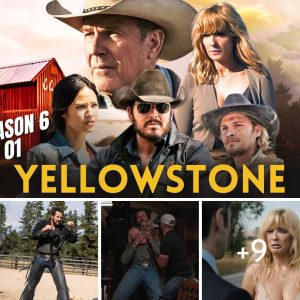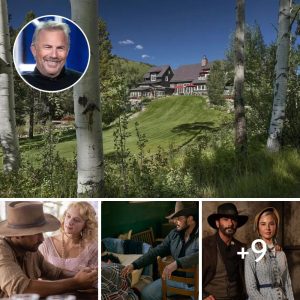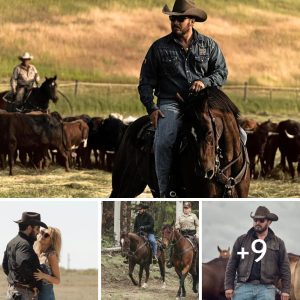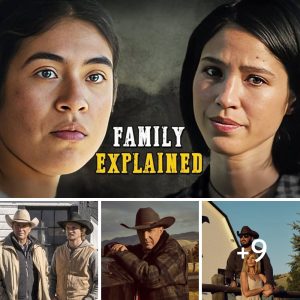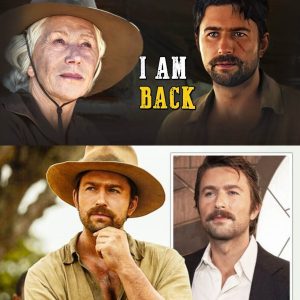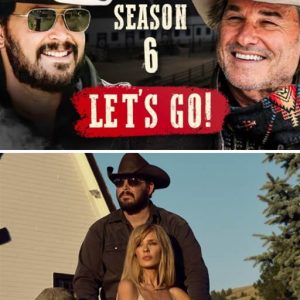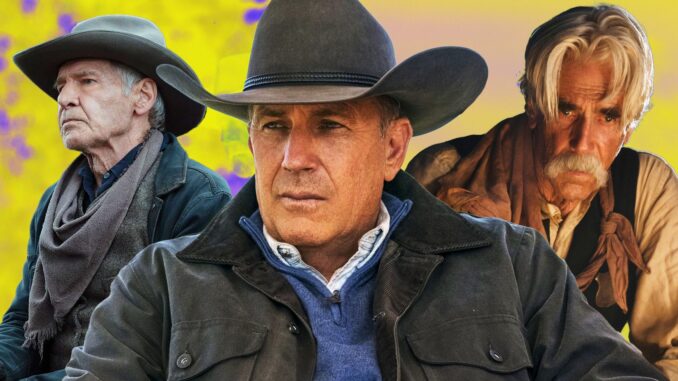
The vast, rugged expanse of the Yellowstone Dutton Ranch is more than just a fictional setting; it’s a cultural touchstone, a modern American saga that grips millions with its blend of untamed wilderness, cutthroat power struggles, and unwavering family loyalty. At its weathered, stoic heart has stood John Dutton, portrayed with a whiskey-soaked gravitas by Kevin Costner. He was the patriarch, the land’s embodiment, the very bedrock upon which the empire was built. So, when news broke of Costner’s impending exit and, almost simultaneously, the announcement of a new chapter – a potential movie or series continuation with Matthew McConaughey at its helm – the fanbase didn’t just react; it splintered, forming a chasm as wide and deep as a Montana canyon, leaving devotees passionately, painfully divided.
For many, Kevin Costner is John Dutton, and by extension, he is Yellowstone. His portrayal captured the essence of a man deeply rooted in the land, a figure simultaneously honorable and ruthless, burdened by legacy yet fiercely protective of his own. Costner’s John Dutton wasn’t just a character; he was an archetype – the last cowboy, fighting against the relentless march of modernity, embodying a dying way of life. His deep-set eyes held the wisdom of generations, his silences spoke volumes, and his occasional bursts of paternal fury were the earthquakes that shook the series. The news of his departure, after a tumultuous period of reported disagreements and scheduling conflicts, landed like a branding iron on sensitive hide. It felt abrupt, unfinished, and for the purists, a betrayal of the core narrative. “Yellowstone without John Dutton isn’t Yellowstone,” they declared, their voices echoing across social media forums and fan pages. They mourned not just the loss of an actor, but the perceived mutilation of a story they had invested years of emotional capital into. For this camp, the show’s soul had departed with its patriarch, and any continuation without him would be a hollow echo, a pale imitation.
Yet, as the dust of Costner’s exit began to settle, another narrative emerged, fueled by the relentless engine of Hollywood: the Yellowstone universe would continue. Rumors, then confirmations, solidified around Matthew McConaughey stepping into a new, as-yet-undisclosed leading role, presumably carrying the torch into a post-Dutton era. For a significant segment of the fanbase, this news was not a wound but a lifeline. This camp, often championing creator Taylor Sheridan’s expansive vision, believes the story is bigger than any single character, even one as iconic as John Dutton. They point to the rich tapestry of the Dutton family, the compelling supporting characters, and the intricate web of alliances and rivalries that define the ranch. They see McConaughey, with his own brand of drawling charm and intense screen presence, as an exciting infusion of new blood, a chance for the Yellowstone narrative to evolve rather than simply end. “The land endures,” they argue, “and so does the story. Sheridan has proven he can build worlds; let him build a new chapter.” Their anticipation is palpable, a hopeful glimmer in the shadow of Costner’s departure, eager to see where the narrative road will lead.
The chasm between these two camps is not merely about an actor or a plot point; it’s a microcosm of deeper anxieties about narrative ownership and the nature of beloved franchises. Is a story defined by its central figure, a singular, irreplaceable performance? Or can it transcend its origins, adapting and reinventing itself to live on? For the heartbroken traditionalists, the idea of a “new Yellowstone” feels like a family heirloom passed into uncertain hands, its value potentially diluted. For the optimistic futurists, it’s a necessary evolution, a testament to the vitality and breadth of a universe they deeply cherish. The discussions are fierce, often bordering on tribal, as fans grapple with loyalty versus the desire for more content, authenticity versus adaptation.
Ultimately, the great Yellowstone divide illustrates the profound, almost personal connection audiences forge with their favorite stories. Kevin Costner’s exit is not just a casting change; it’s a symbolic severing of a key artery. The news of a new movie or series continuation, while offering the promise of more, forces fans to confront whether they value the legacy of the original or the potential for new growth. As the Montana winds whip across the digital plains, the two camps stand firm, gazing across the divide, each convinced their perspective holds the truth of Yellowstone’s soul. The real test, of course, will come when the new chapter unfolds, and the vast, unblinking eye of the viewing public decides which side of the canyon truly holds the heart of the Yellowstone story.
